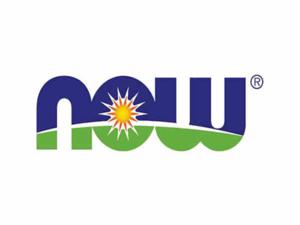As product seals multiply, consumers are turning to retailers to end the confusion.
Non-GMO Project Verified. USDA Organic. Natural Seal. GMP Certified. Gluten-Free. NSF Certified for Sports. As consumers become more and more health conscious about the products they purchase for themselves and their families, confusion appears to be at the forefront when it comes to understanding natural product certifications and labeling.
Making sense of the assortment of product seals that grace the labels of consumers’ favorite natural products is quickly becoming the undertaking of the retailer, who must educate the consumer and help them to navigate their way around the various labels.
“There is definitely consumer confusion out there regarding certifications and labeling,” said Roxanne Green, part of the management team at Seattlebased PCC Natural Markets and current president of the Natural Products Association (NPA). “People are questioning things like organic products and non-GMO (genetically modified organism) and what they mean. We have a lot of shoppers and we continually ask them what they are looking for. We tell them to use our employees as a resource. We as retailers have to educate consumers every day.”
One of the broader questions consumers are asking, according to Green, is what the definition of “natural” really is and what the various product certifications and seals mean on the products they are shopping for.
“There’s no doubt that we as an industry need a clearer definition of what “natural” is and the NPA should be the ones to steer that,” Green said, adding that the NPA currently has 1,200 products that carry its Natural Seal certification for home care and personal care products.
“Previously there were no standards for personal care products and many of them weren’t as ‘natural’ as we thought,” continued Green. “Guidelines are needed and one standard for retailers is the goal. At PCC Natural Markets, we require that our products meet these standards before they get placed on our shelves.”
Dan Fabricant, PhD, executive director and CEO of the NPA, added, “If you ask 10 people what the term ‘natural’ means, you’ll get 11 different answers. what it means to both manufacturers and retailers going forward.
“The consumer is worried about being defrauded, that’s their biggest concern,” said Fabricant. “People have it in their minds what each seal or label means to them and they need to understand what each one really means. We [NPA] were the first ones to push for certification and transparency. The standard has to be evolving as technology changes and there has to be a process in place.”
Non-GMO: Leader of the Pack
Leading the way among the new wave of natural product certifications is non- GMO, which has exploded in popularity of late as consumers continue to search for healthy products for themselves and their families that are free of GMOs. In fact, 76 percent of natural food shoppers are seeking non-GMO products, according to the 2013 Market LOHAS MamboTrack Health & Natural Shopper Annual Study.
The Non-GMO Project offers North America’s only third-party verification and labeling for non-GMO food and products and has quickly become the most popular seal to grace natural products. According to the organization, there are currently 20,000 Non- GMO Project Verified products from 2,200 brands, representing more than $7 billion in annual sales. Non-GMO Project Verified is currently one of the fastest growing labels in the natural food sector.
Utah-based Trace Minerals Research (TMR) recently had its Utah Sea Minerals Non-GMO Project Verified. “We’re proud to add another Non-GMO Project Verified Product to our line,” said Matt Kilts, managing partner of TMR in a recent statement. “We are committed to providing safe and quality products and we reiterate our belief that consumers have a right to know what is in the food and supplements they take.”
The Non-GMO Project was started by retailers, according to Courtney Pineau, associate director for the Non- GMO Project, and in addition to its verification program it works with stores across the county on product policies, shelf labeling and other consumer education programs. Pineau also points to her organization’s social media presence, with nearly 600,000 Facebook followers.
“Gaining Non-GMO Project Verified status makes sense for companies that want to provide their customers the right to know what is in the products they are buying for themselves and their families,” Pineau said. “With so many brands now seeking verification for their products, we have seen tremendous change throughout the entire supply chain – and it all begins with direct consumer demand. While the supply chain is trying to keep up with demand of non-GMO ingredients, many manufacturers are helping drive that shift.”
Consumer interest in non-GMO certification has registered striking growth in importance in supplement decisions as well over the last three years, according to Missy Lowery, senior marketing manager, Capsugel, Americas Region, maker of Vcaps Plus and Plantcaps capsules, both verified by the Non-GMO Project. Capsugel’s market research has shown that consumers check certification on the labels of their products before they decide to buy food and supplements – vegetarian, vegan, gluten free, halal, and kosher, among others. And according to the 2013 Natural Marketing Institute SORD (Supplement, Over-the-Counter and Rx Database) Study, 42 percent of supplement users said they consider non- GMO compliance important in their purchase decision. Furthermore, consumer consideration of non-GMO labeled supplements surpassed their consideration for vegetarian, gluten free and kosher or halal.
“The interest in non-GMO verification is recent in comparison and represents a major shift, especially among new young buyers, for products made without genetically modified organisms,” Lowery said.
Like many of the other product certifications in the natural products industry, standardization of non-GMO is what most experts point toward in order to lessen consumer confusion.
“Outside of the organic standard, there are hundreds or even thousands of non-GMO claims that have been used on food products,” offered Ken Ross, CEO of Global ID, co-founder and technical administrator of the Non-GMO Project. “These claims may be simple declarations on a package that the product is non-GMO or it may be some sort of seal or third-party claim. Some of the claims may be based on a standard while others may not be.
“It was really in response to this lack of ‘standardization of standards’ that the Non-GMO Project came into being. Without transparency behind a non-GMO claim there is very little a consumer can do to know whether or not the product they are buying is truly non-GMO.”
“We have provided education on (GMO) testing protocols and challenges and are in the process of offering a directory of analytical labs that have non-GMO testing capabilities,” said Loren Israelsen, president, United Natural Products Alliance (UNPA). “As there is currently no accepted definition of the term ‘natural,’ we are working with many others to craft a working definition that will help resolve the current litigious environment and to bring a sense of order to the merits of the terms natural, organic and non-GMO.”
Non-GMO vs. Organic
One area of concern and confusion among consumers appears to be the relationship between products carrying the non-GMO (or Non-GMO Project Verified) seal and those certified as USDA Organic. But is organic always GMO-free?
According to the Organic Trade Association (OTA), “the use of GMOs is prohibited in organic products. To meet the USDA organic regulations, farmers can processors must show they aren’t using GMOs, and that they are protecting their products from contact with prohibited substances, such as GMOs, from farm to table.” The rigorous requirements of the National Organic Program help to prevent GMO contamination or organic foods through a process-based approach, which includes testing when GMO contamination is suspected.
“The Non-GMO Project builds upon these measures by ensuring that all major GMO risk ingredients are tested prior to use in a verified product, as we believe that ongoing testing is critical to identifying and eliminating GMO contamination,” said Pineau. “Choosing products that are USDA Certified Organic and Non-GMO Project Verified is the best way for consumers to make sure they are getting the safest, healthiest, high-quality food for their families.”
Demand for organic products is booming, with sales in the U.S. jumping to $35.1 billion in 2013, a 12 percent hike from the previous year and a new high mark, reported the OTA, adding “The U.S. Families Organic Attitudes and Beliefs 2014 Tracking Study” shows that eight out of 10 American families now make organic products a part of their grocery list, at least part of the time.
“Consumers can be very comfortable when they are buying USDA Certified Organic products that they are non- GMO,” added Global ID’s Ross. “Organic products carrying the Non- GMO Project seal, in addition to the USDA Organic seal, have undergone an additional layer of scrutiny to insure that the ingredient suppliers are following industry best practices to avoid accidental contamination. This has become more important in recent years as the percentage of corn and soy in the U.S. that is genetically modified is now over 90 percent.”
The mission of UNPA is to educate, motivate and facilitate the commercial and technical competence to help those companies that want to move toward non-GMO products to do so efficiently, according to Israelsen.
“We see an urgency to clarify these terms,” said Israelsen. “For example, many consumers and some retailers do not seem to understand that certified organic is automatically non-GMO. Consumers place different values on these terms and what they stand for. We believe that the centerpiece of all this is certified organic. For 20 years the industry and the USDA have worked on a comprehensive process that lays out agricultural practices, manufacturing and labeling of COG products. This is the bedrock. It is both possible and desirable to build on that foundation with non-GMO and a more disciplined use of the term ‘natural.’”
Other Top Seals
While non-GMO and Certified Organic seals appear to be stealing the headlines on natural products these days, consumers should also be aware of a few of the other qualifying seals gracing their favorite items and what they mean:
• NSF Certified for Sports – Developed by NSF International to help athletes, coaches, trainers and health and fitness enthusiasts make more educated decisions when choosing nutritional supplements, this seal can be found on many of your favorite sports nutrition and dietary supplement products, such as Dallas-based Essential Formula’s line of CHIA OMEGA products, which recently earned this designation. The NSF Certified for Sport program also tests and certifies that product content matches ingredient label claims, and inspects the manufacturing facility in which the products are made twice annually for GMPs (good manufacturing practices) pertaining to 21 CFR 111 – the FDA regulation for dietary supplement good manufacturing practices. “NSF is active in educating consumers about what the NSF mark means, how to select the right supplement as well as read and understand supplement labels,” said Lisa Thomas, general manager of Dietary Supplement Programs at NSF International, which recently introduced the upgraded NSF Sport mobile app to make it easier for consumers to search and find dietary supplements and sports nutrition products that have earned the NSF Certified for Sport certification.
• GMP (good manufacturing practice) – The Food and Drug Administration requires that supplement manufacturers are compliant with GMPs, and they can be certified by a third-party. The NPA offers a thirdparty GMP certification program specific to the certification of dietary supplements and dietary ingredients. “We have a strong history in GMP certification and the best auditors,” said NPA’s Fabricant. “We can also educate the industry on how an agency will look at inspections.” At Quality & Compliance Services, a Canadian company that provides compliance and quality-control services to the natural health products industry, training is at the forefront. “A self-inspection is not required for natural health products, but is still recommended,” said Deborah Campbell, president and founder of Q&C Services, which recently introduced its pocket-sized GMP booklets. “Any business operating under a compliance program should have internal audits or selfinspections.”
• Gluten Free – Another major player among the top seals qualifying natural products is gluten free. Currently, three organizations — the Gluten Intolerance Group’s Gluten-Free Certification Organization (GFCO), the Celiac Sprue Association (CSA), and the National Foundation for Celiac Awareness (NFCA) — certify products and companies as gluten free. Once Again Nut Butter, Nunda, NY, recently had all of its nut butter products attain gluten-free certified status through the Celiac Sprue Association.
Sealing the Deal
The multitude of product certifications and seals don’t seem to be going away any time soon. As consumers continue to demand more transparency as to what goes into their products, manufacturers and retailers alike should arm themselves with the necessary tools and information to keep their customers informed.
“Everyone in the food industry is concerned about the costs of certifying various aspects of food production and retailing,” said Ross. “Everyone is also concerned about consumer information overload and the limited real estate on products for more labels or seals. Unfortunately, it is likely that more, rather than less, certification will be required in the future due to the globalization of the world’s food supply.
“A strong trend is the growing concern among consumers about understanding where their food comes from and under what conditions it was produced. Issues such as sustainability, social justice, and environmental responsibility are moving to the forefront and various forms of thirdparty certification will likely play a role in assuring consumers that the products they eat are in alignment with their personal values.”
“There will be some (certification) consolidation, a ‘seal war’ at some level,” added NPA’s Fabricant. “Having one program in place will certainly help.”
Retailers’ Role
As consumers continue to navigate the evolving non-GMO landscape, it is more important than ever for natural product retailers to be the go-to source of information for products carrying this sought-after seal among others.
“The Non-GMO Project continues to see rapid growth in its verification program, and new technical administrators have been added to the program to build capacity,” said Pineau.
“Retailers across North America have been active in building consumer awareness and sharing educational resources with their shoppers.”
“The challenge also extends to the inappropriate use of quality and GMP seals,” added UNPA’s Israelsen. “Retailers can do a service if they simply ask for the bona fides of seals on labels. We must reserve certified status for programs that are robust and independent.”
Finally, NPA’s Fabricant concluded, “Retailers can act as the gatekeepers and look to standards like [NPA] or follow their own standards. And, of course, if a product doesn’t meet those standards and doesn’t perform, consumers won’t buy it no matter how many labels are on it. My advice to consumers is to look at the claims on the products and look at where you buy those products. Independent retailers are going to be the better choice because they can better explain the labels and what they mean.”










